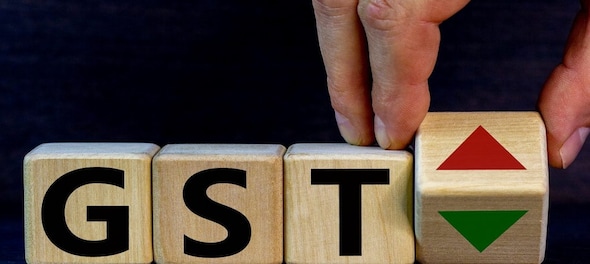
One of the major steps to align the India’s indirect taxation system with that of the best practices followed by the countries across the globe has been the introduction of the Goods and Services Tax (GST). GST is a tax that has subsumed majority of erstwhile indirect taxes and is imposed on supply of goods or services. GST over the last half-decade has brought down the tax barriers across the country, by cutting out the cascading effect of taxes, and has expanded the tax net.
While there were some challenges to both the government and businesses in the initial days of GST implementation, standing today, it can be said that GST has largely facilitated the "ease of doing business". Credit here goes to automation introduced by the government, with most tedious compliance now taken online, and increase in transaction transparency with has been achieved because of introduction of e-invoicing and e-way bill systems.
On account of GST introduction, companies do not have to deal with the multiple tax officers and tax laws. For the government, data analytics which have been facilitated with the introduction of GST have helped to curb ill practices. Digitisation has cut down the communication barriers between government departments, and the best example of this is the MOU being signed between the indirect tax and direct tax wing of the government, namely CBIC and CBDT.
Furthermore, a country’s taxation system is one of the key criteria used to assess countries in the World Bank Group's Ease of Doing Business Index, India was placed 142nd out of 190 countries in 2014. India has been steadily moving up this rating ladder after implementing the new indirect tax structure of GST. India has made significant progress, moving up the rankings from 142nd in 2014 to 77th in 2018 and to 63rd as of October 2019.
Now, just like the flip side of a coin, the GST regime has seen its fair share of shortcomings too. GST, which was supposed to provide seamless flow of tax credits, has not been able to fully fulfil this promise. In specific circumstances, such as hotel stays in another state by employees traveling on business, event management, wrong declaration by suppliers due to clerical error, etc., seamless credit is not permitted. The GST law's pledge to refund exporters in a timely manner has also turned out to be misnomer. Especially in cases where exports are made without payment of GST, the on-ground mechanism for refund of input GST has turned out to be a cumbersome task both for the taxpayers and the Government.
The woes of the taxpayers have been aggravated with divergent advance rulings being issued by different State’s Authority for Advance Ruling, overlapping notices being issued by Centre and state, in an attempt to assert their jurisdiction, and delay in setting up of Central Appellate Authority for Advance Ruling, and GST Tribunals.
The above shortcomings have not gone unnoticed by the government, and the industry representation are duly considered. As such, the government has been continuously making amendments to fulfil the purpose for which GST was introduced. This is evident from the decisions taken in the recent 47th GST Council meet, such as correction of inverted duty structure for various sectors, proposed changes in GSTR 3B form, setting up pf GOM to discuss on the way forward regarding GST Tribunals, etc.
Indian economy is one of the world's fastest expanding. Economic measures adopted by the Indian government will serve as a stimulant for the expansion of the Indian economy in the age of globalisation. Introduction of GST is one of the initiatives taken by the government to transform the economy into globally competitive one. This move has helped the business organisations to optimise supply chains and maximise efficiency in the allocation of resources across the country without any regional tax disparities. The GST regime has had its drawbacks, but the positives outweigh the negatives, and this coupled with continues efforts of the Government to make GST more equitable and effective has made GST the success that it is today.
— This article has been authored by Abhishek Jain, Partner, Indirect Tax, KPMG India, and Oshank Mittal, Chartered Accountant. Views expressed are the authors' own.
(Edited by : Vijay Anand)
Check out our in-depth Market Coverage, Business News & get real-time Stock Market Updates on CNBC-TV18. Also, Watch our channels CNBC-TV18, CNBC Awaaz and CNBC Bajar Live on-the-go!


Andhra Pradesh Lok Sabha elections: A look at YSRCP candidates
Apr 25, 2024 6:54 PM
Lok Sabha elections 2024: Banks and schools to remain closed in these cities for phase 2 voting
Apr 25, 2024 5:33 PM
Andhra Pradesh Lok Sabha elections: Seats, schedule, NDA candidates and more
Apr 25, 2024 5:16 PM

